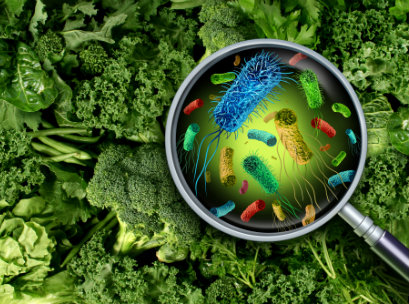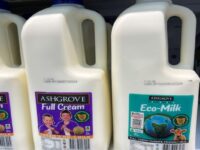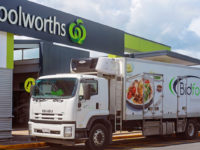 Danish bioscience company, Chr Hansen, has created a world first natural protection against listeria which could save Australian food manufacturers and retailers millions of dollars.
Danish bioscience company, Chr Hansen, has created a world first natural protection against listeria which could save Australian food manufacturers and retailers millions of dollars.
Safe Pro includes naturally-occurring bacteria strains that can be sprayed onto high-risk foods such as processed meats, ready to eat meals, smoked salmon and pre-mixed salads at the time of manufacture, to inhibit the growth of listeria. The bioprotective cultures contained in the product can also help extend shelf life and therefore reduce unnecessary food waste.
The Australian food industry has been on high alert since a listeria outbreak last year, in which eight Australians died and one miscarriage was reported as a direct result of eating food contaminated by high levels of the bacteria.
In July 2018, Federal Agriculture Minister David Littleproud reported that the rockmelon listeria crisis cost the industry about $60 million because growers couldn’t sell their fruit.
Chr Hansen Australia & NZ CEO Kylie Evans spoke to Inside FMCG about how the product could be “a game changer” for the industry. A number of well-known companies in Australia are already testing the cultures through their manufacturing processes.
Inside FMCG: What is the biggest cause of listeria contamination in food products?
Kylie Evans: Listeria is naturally and frequently occurring in the environment. At risk foods include those where heat isn’t a part of the manufacturing process, such as ready to eat foods like salads, seafood and deli meats. While Good Manufacturing Practice is critical to any manufacturer, poor food-handling after it leaves the manufacturers site can also result in listeria growth. SafePro provides an extra safety step to ensure listeria growth is inhibited in these foods and it continues to work in the product well after it leaves the factory gates.
Inside FMCG: How does SafePro work?
Kylie Evans: SafePro is a specially selected “good bacteria” that was chosen as it acts to inhibit listeria growth. It works in three main ways, 1. It grows in these food applications outcompeting listeria for nutrients and space; 2. It produces specific metabolites that target and destroy the cell wall of listeria; 3. SafePro® bacteria can communicate to each other that listeria is present and dangerous, and like an army rallies the troops collectively fight against listeria. This is called quorum sensing.
Inside FMCG: What impact could this product have on Australian food industry?
Kylie Evans: Listeria contamination, as witnessed in the past couple of years in the Australian food industry can be disastrous not just for the lives it impacts, but individual brands and the wider food category. Australians deserve to be able to trust their food to be safe to eat, likewise the producers and brands making our food strive to be trusted. By adding SafePro in addition to the existing GMP, listeria growth is inhibited. Every additional hurdle that is used in the prevention of listeria outbreaks in the food industry would be result in less deaths, significantly reduced risk and prevention of listeria outbreaks.
Inside FMCG: Could SafePro impact the product in any other way?
Kylie Evans: The use of SafePro cultures to control listeria growth has shown through Sensory testing in a range of different food products has shown a positive impact, in fact the food tastes and smells fresher than standard product. $20 billion of food per year in Australia goes to waste, often due to the expiry date. Using our bioprotective cultures can add conservatively an extra seven days to the shelf life of a yoghurt, which means we can potentially reduce waste of that product alone by 30 per cent.
















